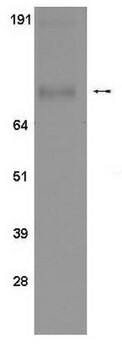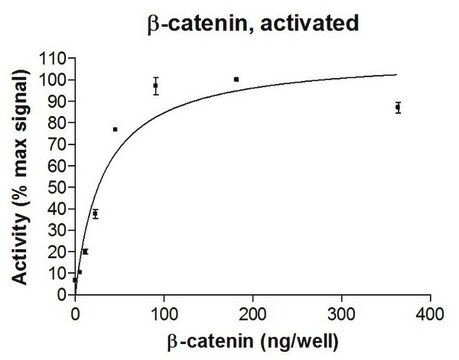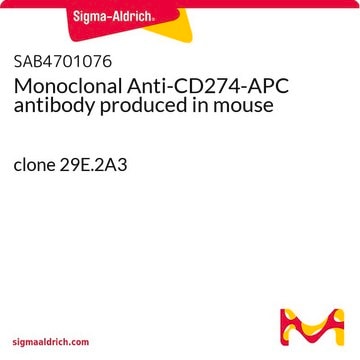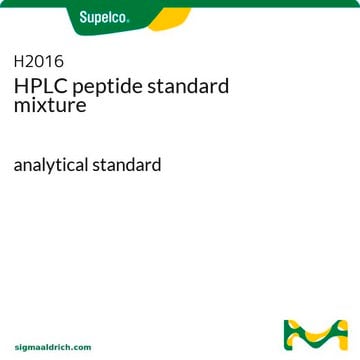05-1319
Anti-EZH2 Antibody, clone BD43
clone BD43, from mouse
Synonyme(s) :
Enhancer of zeste homolog 2, Lysine N-methyltransferase 6, enhancer of zeste 2, enhancer of zeste homolog 2, ENX-1
About This Item
Produits recommandés
Source biologique
mouse
Niveau de qualité
Forme d'anticorps
purified immunoglobulin
Type de produit anticorps
primary antibodies
Clone
BD43, monoclonal
Espèces réactives
human, mouse
Technique(s)
western blot: suitable
Isotype
IgG1κ
Numéro d'accès NCBI
Numéro d'accès UniProt
Conditions d'expédition
wet ice
Modification post-traductionnelle de la cible
unmodified
Informations sur le gène
human ... EZH2(2146)
Description générale
Spécificité
Immunogène
Application
Epigenetics & Nuclear Function
Apoptosis & Cancer
Chromatin Biology
Qualité
Description de la cible
Liaison
Forme physique
Stockage et stabilité
For maximum recovery of product, centrifuge the vial prior to removing the cap. Avoid repeated freeze/thaw cycles, which may damage IgG and affect product performance.
Remarque sur l'analyse
HeLa Nuclear Extracts
Autres remarques
Clause de non-responsabilité
Vous ne trouvez pas le bon produit ?
Essayez notre Outil de sélection de produits.
Code de la classe de stockage
12 - Non Combustible Liquids
Classe de danger pour l'eau (WGK)
WGK 1
Point d'éclair (°F)
Not applicable
Point d'éclair (°C)
Not applicable
Certificats d'analyse (COA)
Recherchez un Certificats d'analyse (COA) en saisissant le numéro de lot du produit. Les numéros de lot figurent sur l'étiquette du produit après les mots "Lot" ou "Batch".
Déjà en possession de ce produit ?
Retrouvez la documentation relative aux produits que vous avez récemment achetés dans la Bibliothèque de documents.
Notre équipe de scientifiques dispose d'une expérience dans tous les secteurs de la recherche, notamment en sciences de la vie, science des matériaux, synthèse chimique, chromatographie, analyse et dans de nombreux autres domaines..
Contacter notre Service technique








